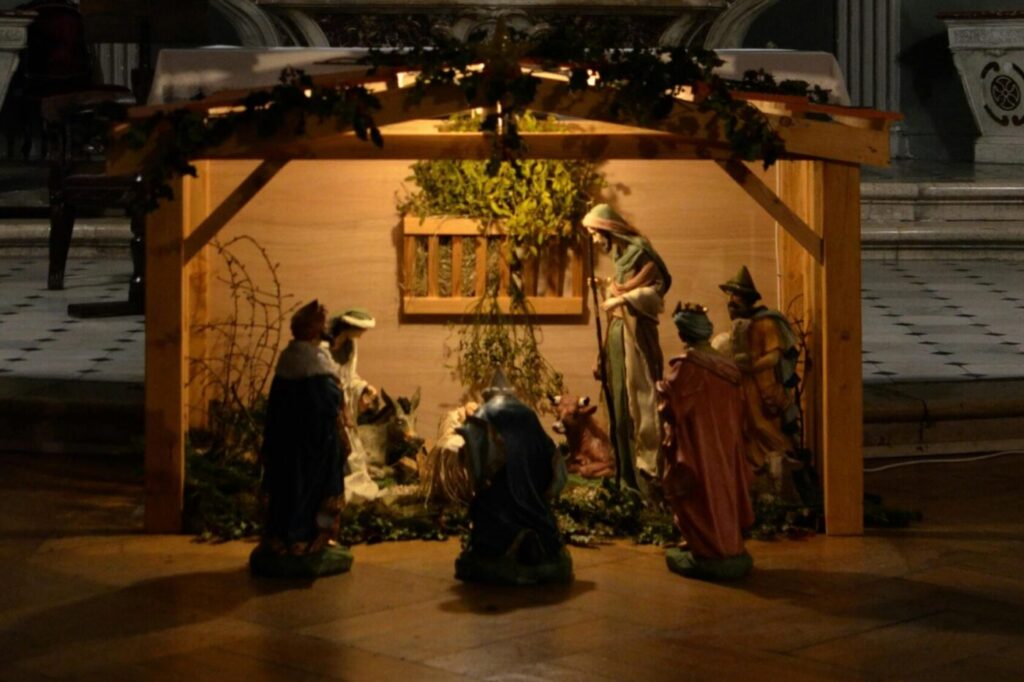Enchantment: The Impact of Modernity and Postmodernity on Christmas
The 3 E's of Christmas: Incarnation, Enchantment, and Listening

In the first chapter, we explored the faith content that underpins Christmas. Now, in this second chapter, we address how modernity and postmodernity have influenced this profound holiday.
Luke’s account, which we looked at earlier, had a strong flavor of innocence for past generations. However, today, in our postmodern age, we no longer believe in the divinity of Jesus in the same way, and without a narrative to support it, Christmas has lost its vitality. The holiday has been transformed into an empty celebration, its cultural cover of mystery stripped away and hardened. Our cities, which once celebrated the event with solemnity, now resemble more like Christmas theme parks, with shows and commercial events that have eclipsed the original religious meaning.
Commercialism has permeated every corner of the holiday. Some cities use Christmas lights for tourist purposes, and bookshop windows are filled with children’s stories. Gastronomy is becoming more refined, and Christmas, instead of being a transcendental experience, has become an increasingly cloying phenomenon, disconnecting society from the spiritual message and reducing it to a holiday for consumption.
This profound change dates back to the evolution of Western culture. In classical times, religion, science and philosophy were complementary disciplines, each respecting its own sphere. However, the Protestant Reformation of 1517 disintegrated the unity of the church and reduced faith to a private matter, which only mattered on a personal level and not in the construction of the world. This transformation continued with the Enlightenment, which promoted the use of reason and science as a means of explaining reality, leading man to replace the Christian hope in the afterlife with a materialistic vision of progress and earthly well-being.
Over the centuries, faith in the progress of science and politics produced revolutions and breakthroughs, but it also brought with it countless tragedies, such as world wars and social crises. Thus, hopes for a paradise on Earth crumbled. Postmodernity, which emerged in the wake of these failures, does not retain the revolutionary passion of modernity. Instead of aspiring to a better future, it merely lives in the present, where the global narrative has lost its ability to transform the world.
We live in what philosopher Jun Chulan describes as a “post-narrative time,” where everything is momentary and ephemeral. This widespread disenchantment has given rise to the feeling that we no longer need a transcendental narrative. And yet, we find ourselves with a dominant worldview that, backed by science, presents an explanation of the universe from its origin to the evolution of human life. This vision, despite its explanatory power, remains insufficient to answer the great questions of existence, such as the reason for the order in the universe or the origin of the moral sense that we perceive in our conscience.
The transition from modernity to postmodernity has left behind a religious worldview that oriented life towards transcendence, and has given way to a society increasingly focused on the immediate, on the material. This change has emptied religious festivities of meaning, and Christmas, which should be a celebration of the Incarnation, has become a simple spectacle devoid of profound content.
Related

A Decade of Laudato Si’: Why Nonviolence is Key to Ecological Justice
Exaudi Staff
23 May, 2025
4 min

Brain-Dead Pregnant Woman Kept Alive to Preserve Fetus
Observatorio de Bioética UCV
22 May, 2025
3 min

Late and Early Divorces: A Call to Strengthen Marriage
P Angel Espinosa de los Monteros
19 May, 2025
3 min

Vertical Families: The Challenge of the Sandwich Generation
Laetare
16 May, 2025
3 min
 (EN)
(EN)
 (ES)
(ES)
 (IT)
(IT)

